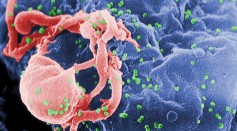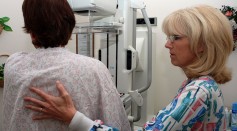health
Duchess of Cambridge, Kate Middleton Marks the Start of Children’s Mental Health Week with a Call to Action
Could New HIV Strain Cross the Atlantic? Fears of the Spread of Aggressive HIV from Cuba

New HIV Strain in Cuba Has Researchers Rushing to Stop Fast Progression of AIDS
Healthcare Workers Attacked in Guinea as Locals Give Ebola the Upper Hand

Valentine’s Day In Space—A Promise to Better Heart Health

Head Lice Home Remedy Leads To the Death of Massachusetts Toddler

Clearing Up the Smoke—Editorial On E-Cigarettes Study & Public Opinion

Pediatricians Weigh In On Medical Marijuana for Kids

Just A Bunch Of Hot Air? The Truth About Vaping

Extra Funding Sought to Fight Antibiotic-Resistant Bacteria

Over-the-Counter Drugs Linked to Increased Chance of “Dementia”

eSight Glasses Give Blind Mother New Sight & The Ability to See Her Son for the First Time

Scientists Can Now Unboil Eggs

Breast Cancer Patients Have Limited Knowledge of Their Disease
Most Popular

AI Revolution in Medical Education: Transforming How Healthcare Professionals Learn

Optimizing Complex Catalog Systems with Graph Theory and Indexing

Out of Office, Not Out of Mind: Planning for Employee Holiday Absences

Nikolay Karpenko Biography, Photo, Career, Accomplishments






